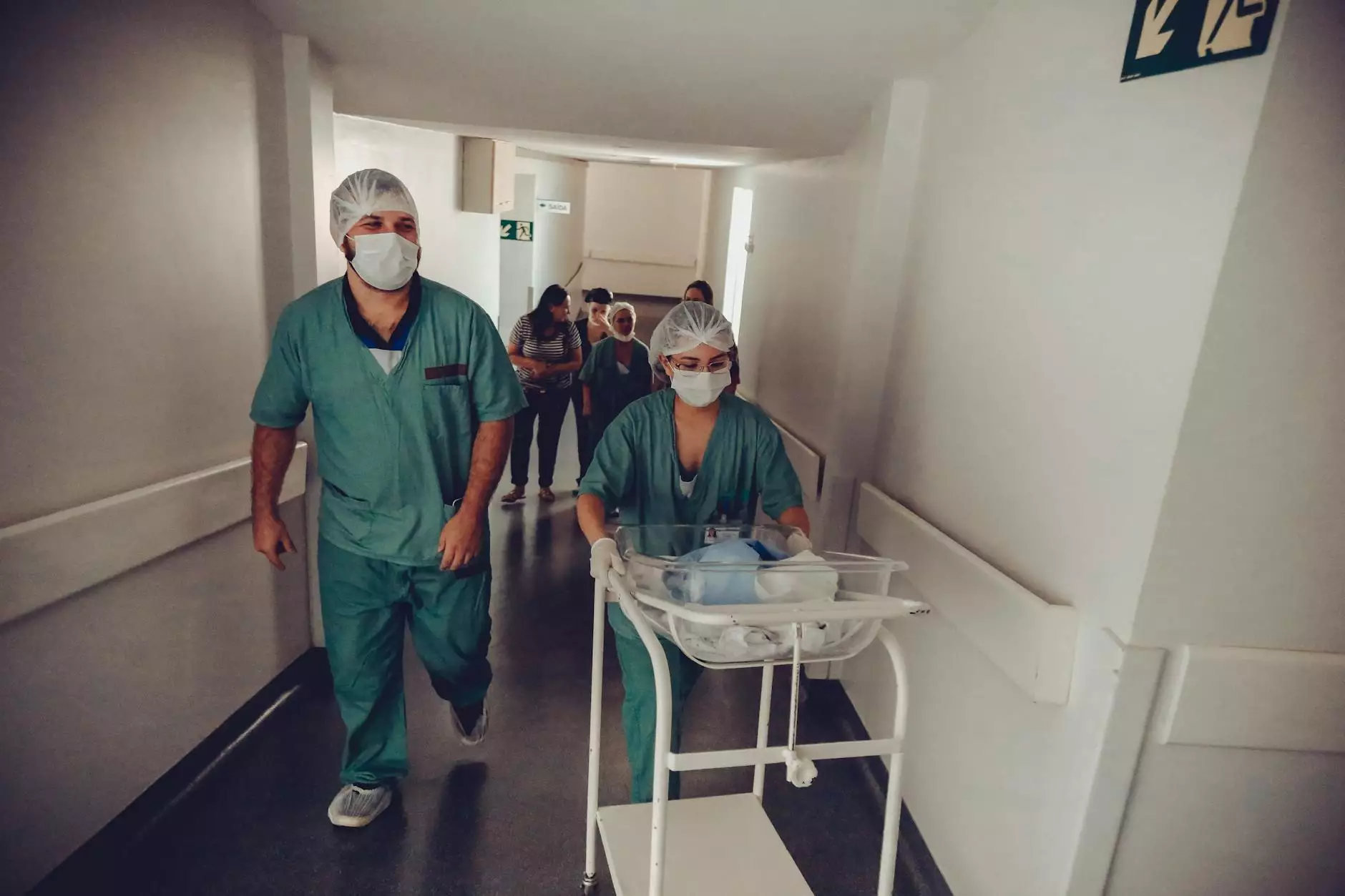Understanding Thyroid Cancer: The Role of Expert Thyroid Cancer Doctors

Thyroid cancer is a compelling health concern that has been on the rise over the past few decades. Understanding this condition, and more importantly, knowing how to find the right thyroid cancer doctors, can profoundly impact outcomes for patients diagnosed with this disease. In this extensive guide, we delve into the nuances of thyroid cancer, its types, symptoms, treatment options, and the pivotal role skilled doctors play in managing this condition.
What is Thyroid Cancer?
The thyroid is a small, butterfly-shaped gland located at the base of the neck that produces hormones essential for regulating metabolism and influencing growth and development. Thyroid cancer occurs when the cells in the thyroid gland start to grow uncontrollably, forming a tumor.
Types of Thyroid Cancer
Thyroid cancer is classified into several types, each differing in behavior, treatment approach, and prognosis. The main types include:
- Papillary Thyroid Cancer: The most common form, accounting for about 80% of cases. It usually grows slowly and often spreads to lymph nodes in the neck.
- Follicular Thyroid Cancer: The second most common type, characterized by its ability to invade nearby tissues and spread to distant sites in the body.
- Medullary Thyroid Cancer: Develops from C cells in the thyroid and may be associated with genetic syndromes.
- Anaplastic Thyroid Cancer: A rare and aggressive form of thyroid cancer that grows quickly and is often associated with poor prognosis.
Recognizing Symptoms of Thyroid Cancer
Early detection is crucial for effective treatment. Some common symptoms include:
- A noticeable lump or swelling in the neck.
- Changes in voice, such as hoarseness.
- Difficulties in swallowing or breathing.
- Persistent cough not related to illness.
- Swollen lymph nodes in the neck.
The Importance of Early Diagnosis
Prompt recognition of symptoms and timely diagnosis by thyroid cancer doctors can lead to more effective treatment options and better outcomes. If you exhibit any of the symptoms mentioned above, it is crucial to seek medical attention.
Diagnosing Thyroid Cancer
Diagnosis typically involves several steps:
- Clinical Examination: Your doctor will assess your physical symptoms, particularly the neck.
- Imaging Tests: Ultrasound and CT scans can help visualize the thyroid gland.
- Blood Tests: Measuring levels of thyroid hormones and thyroid-stimulating hormone (TSH).
- Biopsy: A definitive diagnosis is often made through fine needle aspiration (FNA) biopsy, where a small sample of thyroid tissue is taken for analysis.
Role of Thyroid Cancer Doctors
The role of thyroid cancer doctors is critical in managing and treating this disease. They possess specialized knowledge and skills that enhance patient outcomes through various facets of care:
1. Personalized Treatment Plans
Every type of thyroid cancer may require a unique treatment approach. Thyroid cancer doctors tailor plans based on:
- Type and stage of cancer.
- Patient's overall health and preferences.
- Response to previous treatments, if applicable.
2. Surgical Expertise
In many cases, surgery is the primary treatment for thyroid cancer. Highly trained thyroid cancer surgeons perform procedures such as:
- Lobectomy: Removal of one lobe of the thyroid.
- Total Thyroidectomy: Total removal of the thyroid gland.
- Neck Dissection: Removal of surrounding lymph nodes in cases of advanced cancer.
3. Follow-Up Care and Monitoring
Once treatment is completed, ongoing monitoring is crucial. Thyroid cancer doctors will guide patients through:
- Regular blood tests to check thyroid hormone levels.
- Imaging studies to monitor for recurrence.
- Management of potential side effects from treatment.
4. Multidisciplinary Approach
Thyroid cancer treatment often involves a team of specialists, including endocrinologists, oncologists, and radiologists, emphasizing the need for a collaborative approach.
Treatment Options for Thyroid Cancer
Depending on the stage and type of thyroid cancer, treatment may include:
- Surgery: As mentioned earlier, surgical options range from lobectomy to total thyroidectomy.
- Radioactive Iodine Therapy: Often used post-surgery to eliminate remaining cancer cells.
- External Beam Radiation Therapy: This may be employed in cases of advanced or recurrent thyroid cancer.
- Targeted Therapy: For specific types of thyroid cancer, especially if they are resistant to other treatments.
- Hormone Replacement Therapy: Essential after total thyroidectomy to maintain bodily functions.
Emotional and Psychological Support
Receiving a thyroid cancer diagnosis can be overwhelming. Patients often experience a range of emotions, including fear, anxiety, and uncertainty. Seeking support from:
- Mental health professionals.
- Support groups.
- Family and friends.
is vital for emotional well-being. A holistic approach that addresses both physical and mental health can significantly enhance the recovery process.
Prevention and Risk Factors
Although the exact cause of thyroid cancer is still under research, several risk factors may increase susceptibility:
- Family History: A genetic predisposition can increase risk.
- Radiation Exposure: Previous radiation treatments to the head or neck.
- Certain Conditions: Conditions such as Hashimoto's thyroiditis and familial syndromes increase risk levels.
While some risk factors cannot be modified, maintaining a healthy lifestyle with regular check-ups can contribute to early detection.
Choosing the Right Thyroid Cancer Doctor
The choice of a thyroid cancer doctor can significantly influence the course of treatment. Here are some factors to consider:
- Credentials and Experience: Look for board-certified oncologists or endocrinologists specializing in thyroid cancer.
- Hospital Affiliations: Ensure the doctor is affiliated with reputable medical institutions.
- Patient Reviews: Seek testimonials from former patients about their experiences.
- Communication Style: A doctor who listens, explains clearly, and respects your decisions can make all the difference.
The Future of Thyroid Cancer Treatment
Research in thyroid cancer is evolving, leading to potential breakthroughs in:
- Advanced Imaging Techniques: Enhanced imaging can allow for earlier detection.
- Innovative Treatments: Research is ongoing into more effective radiotherapies and targeted drug therapies.
- Genetic Research: Understanding genetic mutations may lead to more personalized therapies.
Conclusion
Thyroid cancer is a manageable disease with early detection and intervention. The expertise of dedicated thyroid cancer doctors cannot be overstated, as they guide patients through the complexities of diagnosis, treatment, and recovery. By understanding the condition, recognizing symptoms, and knowing how to seek the right medical professional, patients can take charge of their health and navigate the challenges posed by thyroid cancer with confidence.
For more information on thyroid cancer and to find experienced thyroid cancer doctors, visit oncologicalsurgery.net.









